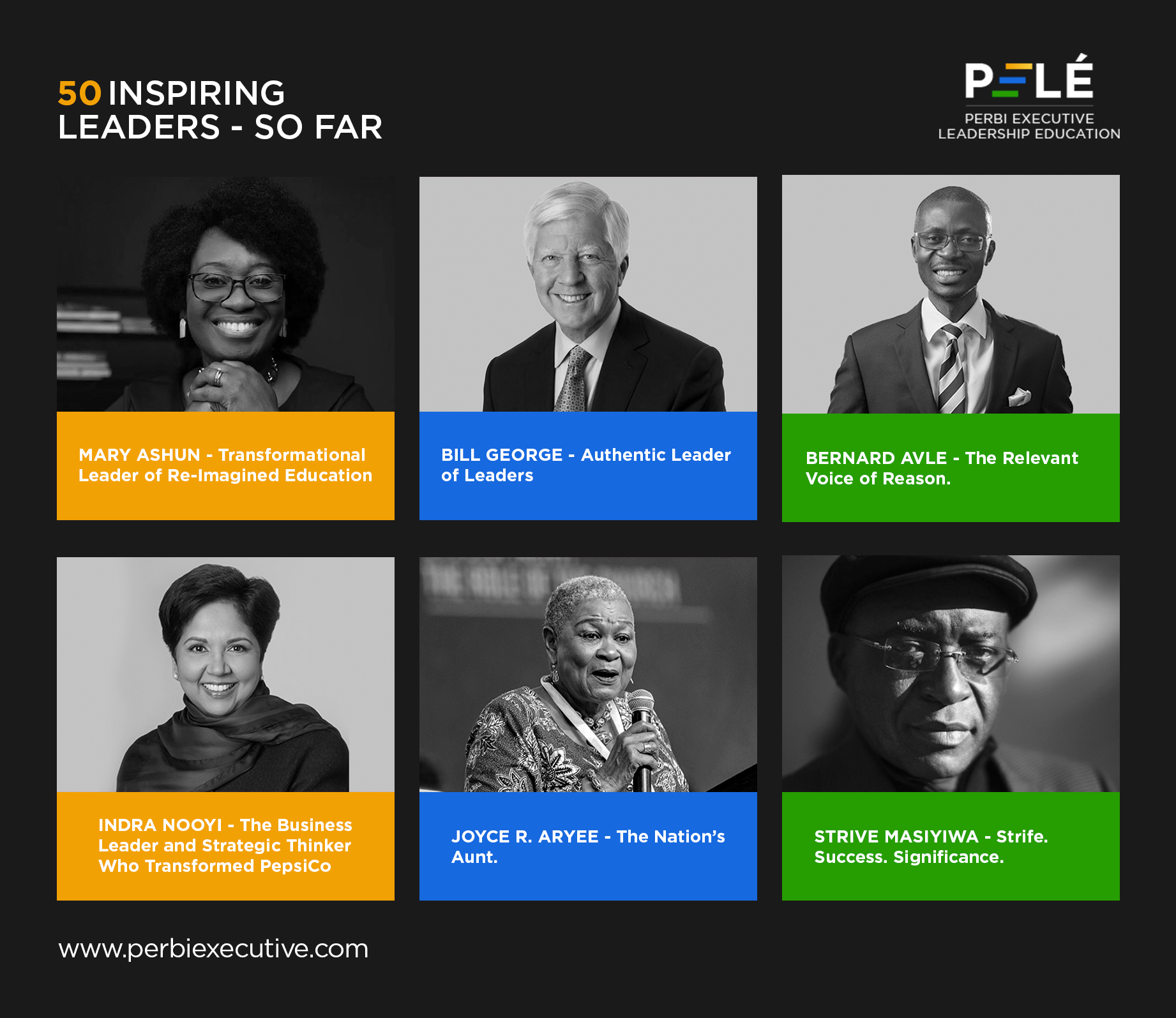
50 Inspiring Living Leaders
Dear Leader,
If you haven’t yet checked out the first 10% of the 50 Inspiring Living Leaders on the Perbi Executive Leadership Education (PELÉ) website, catch up quickly and get some oxygen for you leadership journey:
1. STRIVE MASIYIWA—Strife. Success. Significance: https://perbiexecutive.com/strife-success-significance…/
2. JOYCE ARYEE—A Nation’s Aunt: https://perbiexecutive.com/a-nations-aunt-joyce-r-aryee/
3. INDRA NOOYI—The Business Leader and Strategic Thinker Who Transformed PepsiCo: https://perbiexecutive.com/indra-nooyi-the-business…/
4. BERNARD AVLE—The Relevant Voice of Reason: https://perbiexecutive.com/bernard-avle-the-relevant…/
5. BILL GEORGE—Authentic Leader of Leaders: https://perbiexecutive.com/bill-george-authentic-leader…/
6. MARY ASHUN—Transformational Leader of Re-Imagined Education: https://perbiexecutive.com/mary-ashun-transformational…/
This 50 Inspiring Living Leaders series highlights current influencers who are succeeding in leadership, integrity, family or entrepreneurship in whatever field and exhibit most, if not all, of our values of PELÉ. We value people, growth, particularity, excellence, success, authenticity and significance. These stories are largely written in terms of growth, success and significance in leadership, integrity, family and entrepreneurship. While we do our best to receive personal references about each leader, most of our research and writing is based on literature review of publicly-available information. As authorities in leadership, we are fully aware that there is no such thing as a perfect leader, and leaders may have their flaws, but we choose to celebrate these inspiring living leaders for their achievements outlined in our series. Having said that, should you happen to have any incontrovertible evidence that any of our featured leaders does not fit our bill of an authentic leader, please write to us at info@perbiexecutive.com. Our vision at PELÉ is a flourishing global ecosystem of authentic leaders characterised by healthy growth, holistic success and lasting significance.
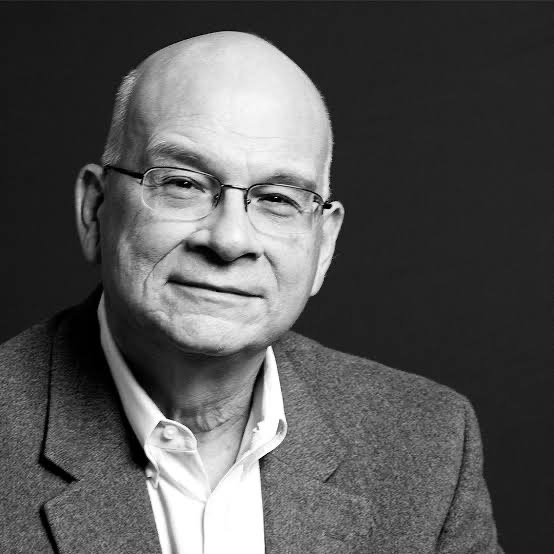
Tribute to Tim of my Table ~ Timothy Keller (1950-2023).
We first met on a table near the Table Mountain; I hope we meet again, in eternity, at a wedding table on a holy mountain.
In an emerging leader-affirming move, typical of The Lausanne Movement, my 32-year old self was appointed a table head at the Third Lausanne Congress on World Evangelization in Cape Town, South Africa. Imagine that. This was a gathering of the crème de la crème of Christian leaders from around the world, even described by some as “the most representative gathering of Christian leaders in the 2,000 year history of the Christian movement” (Christianity Today).
Each table had about half a dozen members. One of mine was Tim Keller. At the time, I had no clue who he was and quite frankly, couldn’t be bothered. Everyone was somebody. He wasn’t always at the table and even when he was there, he wasn’t quite there.
The Congress was over and everyone received their beautiful certificates of participation. Tim wasn’t there. Again. Apparently he had left back to the United States earlier. So I decided to travel back to Canada with his certificate, do an internet search of his whereabouts and mail his certificate to him in the States.
THAT is when I found out to my shock what a tall figure of a man this was! I eventually did get to speak with a staff and mail his memento to the right address (I would hope) in New York City. Rev. Dr. Tim Keller, founder and lifelong pastor of the 5,000-member Redeemer Presbyterian Church, was über brilliant and very deep—in head and heart. So deep that he had decided not to write any book till he was in his fifties. “Writing a book in your 50s will go twice as fast and be twice as good as if you try the same book in your 30s. It’s just good stewardship to wait,” he told The Gospel Coalition, which he was co-founder and Vice President of.
The other dimension I admired most about Keller was how ambidextrous he was in elucidating the gospel and engaging the culture, simultaneously! Stupendous! That, to me, was epitomized in his invitation to speak on his obviously Christian worldview book, ‘The Meaning of Marriage,’ at Google in Silicon Valley. Check out his presentation and responses to their questions and comments. Dr. Keller mentored many, near and far, in-person, in spirit and via media. Those around the world who were directly mentored through his Redeemer City to City should count themselves fortunate, blessed. I just spotted on Facebook a touching tribute from a pastor friend of mine from Brazil who recently planted a church in Rome, inspired and equipped by Rev. Keller.
As a latter day follower of Tim on Twitter, I admired the way he vulnerably yet resolvedly faced his imminent death, having been diagnosed with pancreatic cancer since 2020, a sequel to his 2002 thyroid cancer battle. All the while incarnationally demonstrating ‘The Meaning of Marriage’ through the dynamics with his wife of nearly 50 years, Kathy Kristy. Tim transitioned into glory on Friday the nineteenth (of May), 2023.
Dr. Tim Keller’s influence on the church and the world for Christ is deep and wide. I hope we share a table, again, at the grand, imminent marriage feast of the Lamb in eternity. Till then, Rest in Peace, champ! #Maranatha!
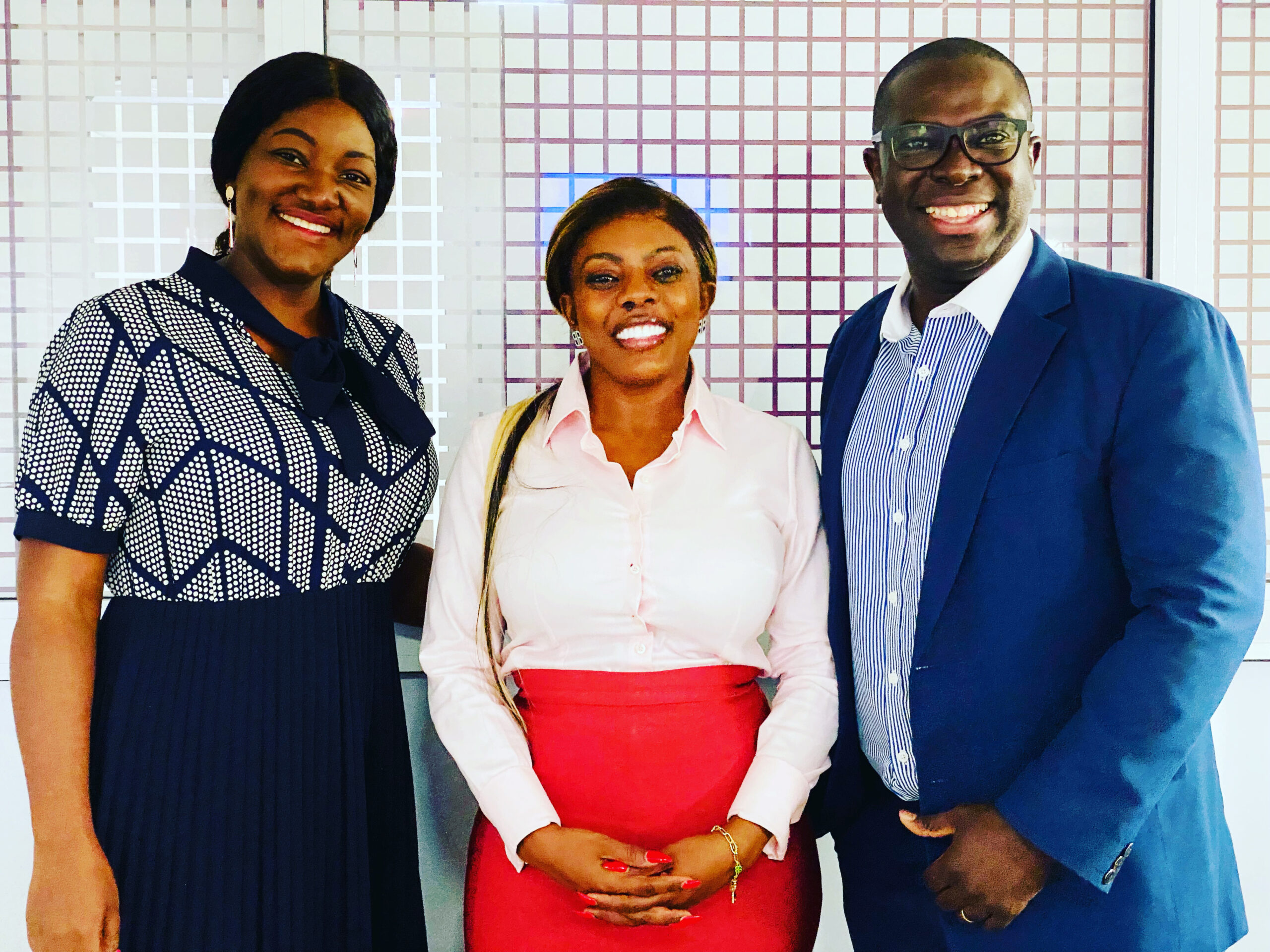
Of Kanévals, Kanébals & Kanévores.
Co-founders of Perbi Cubs sandwiching Kanéval partner-influencer, Nana Aba Anamoah, media personality & General Manager of GHOne TV/Starr FM.
This year, the capital city of Ghana where my wife hails from and where I was born has been named by UNESCO as its twenty-third World Book Capital. Accra takes over from Guadalajara, Mexico (2022) and will be handing the baton to Strasbourg, France come April 2024. Since ‘kané’ is the Ga word for read—and Ga being the language of the Accra people—Perbi Cubs Library services creatively replaced the near-homophonic ‘carni’ in ‘carnival’ with ‘kané’ and coined the word ‘Kanéval’ to bring fun to reading, which is otherwise unfortunately perceived widely as a bore and a chore.
As official partners of UNESCO Accra World Book Capital 2023 (AWBC ‘23), Perbi Cubs will be organizing Kanéval as a fantastic year-long program, a traveling fun fair transitioning from place to place with lots of amusements intertwined with lots of reading. You will find a fuller history of the UNESCO AWBC’23 partnership and details of the year-long fiesta here.
RESCUE FROM KANÉBALS
We are of the conviction that this Kanéval social service campaign needs to involve key influencers from all walks of life, from CEOs to Black Stars players to musicians, to consistently show that reading is fun and leads to success. The campaign will consist of various events in-person and online, including book fairs, storytelling sessions, and community outreach programs. By making reading fun and accessible, we can encourage more people to read and ultimately improve literacy rates in the community.
When we began approaching various influencers to join us on this reading revolution campaign, a massive behavioural change intervention, some of the stories we heard about the generally poor reading attitudes and habits of Ghanaian society were stupefying. We found kindred spirit in Nana Aba Anamoah (photo above), media personality and General Manager of GHOne and Starr FM, who unbeknownst to us had years back initiated a reading campaign known as ‘Raising Readers.’ She too had involved several influencers, including former Ghanaian president Jerry John Rawlings, to read with the children in a certain deprived area of Accra. Book donations in their thousands to the cause were a shot in the arm.
At some point it was clear parental involvement would bolster this behavioural change campaign. Some parent did accompany their children and wards to the reading sessions. Mostly reluctantly. In spite of these mostly illiterate parents sucking their teeth after only a little while, thinking of all the other more ‘productive’ ways they could be spending their time, Nana Aba and team pressed on. In fact, at the height of her intervention they had decided that once a week was not enough for the pace and profundity of the transformation they sought so they decided to leave books with the families and replace them when they returned the week after.
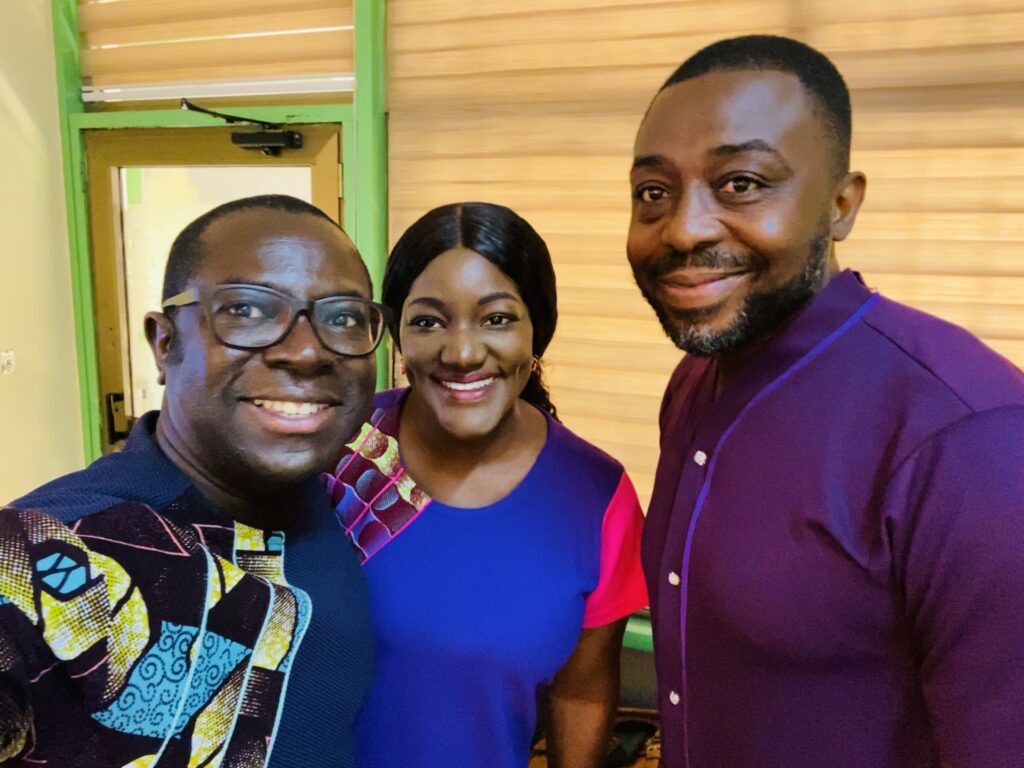
Cofounders of Perbi Cubs with yet another partner-influencer, Kafui Dey, author and GTV Breakfast host
All seemed well and good until the following week when some medical doctors on the Raising Readers campaign team who had gone down the road to grab some snacks returned with horror on their faces. When Nana Aba relates this story, she might not be aware but her face betrays the pain of the let-down she felt. The snacks that the team mates purchased in the catchment area had been nicely wrapped in freshly torn out pages of last week’s books! Kanébals (do you see what I’ve done with ‘cannibal’ and ‘kané’?) had dismembered the hitherto living literary friends, ripping them from their saddle-stitched and perfect-bound spines and repurposing the cadavers as food packaging. Ah!
When we related this story to another influencer on our bill, Kafui Dey (photo above), author and Breakfast host on GTV, he told us worse. Sometimes it’s pages of even the Bible that are Kanébalized for wrapping food!
WANTED: KANÉVORES IN THE KAPITAL
Perbi Cubs, convinced that readers are leaders and leaders are readers, has from inception sought to raise lion-leaders, hence the referral to our 10,000 young patrons as cubs (the young of lions) rather than the typical ‘kids’ (the young of goats).
By the end of the year-long Accra World Book Kapital, we seek to have enrolled an army of at least 100,000 cubs who are voracious readers, Kanévores. If carnivorous lions are the king of the jungle, we imagine that Kanévores rule the world.
KALL TO ACTION
According to UNESCO, as of 2021 only 6% of children in classes two and three in public basic schools could read and understand anything they read. Lack of sufficient reading resources and very large class sizes are among the root causes of the problem, but the overarching root cause is that society does not value reading. Reading is seen as a chore, a punishment or even a necessary evil! Yet per credible research, the love for reading is a stronger indicator of a child’s success in school and their future career than even their parents’ level of education and their socioeconomic status.
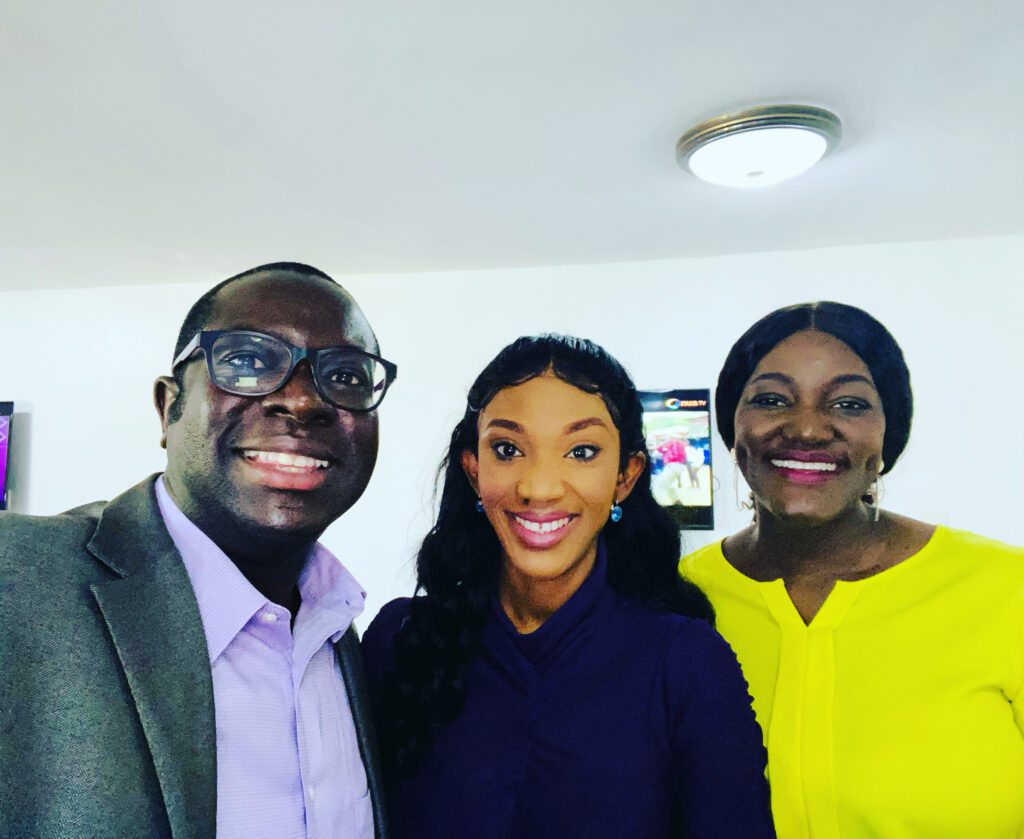
With media personality and reigning Ghanaian Journalist of the Year, Portia Gabor, at the TV3 studios in Accra. Portia’s partnering Perbi Cubs for this vital social intervention, Kanéval!
Join us in promoting the joy of reading and improving literacy rates in the community, particularly among children in public basic schools, by becoming a partner for Kanéval. Together, we can make a real difference in the lives of our community members and future generations. Let’s celebrate and make the most of Accra’s selection as UNESCO World Book Capital 2023.
KONCLUSION
Accra has been selected as UNESCO World Book Capital 2023 and Kanéval is a one-year social service campaign organized by Perbi Cubs, as official partners of UNESCO AWBC 2023, to celebrate this achievement and promote the joy of reading and improving literacy rates in the community.
The success of the campaign depends on a coalition of all stakeholders in the book industry, influencers, and strong partnership with the media. Together, through massive Kanévals all year, we can raise Kanévores and end apathy towards the written word that results in Kanébalism and the like. May readers rise and leaders come to light to transform society and impact the world—from Africa to the Rest.
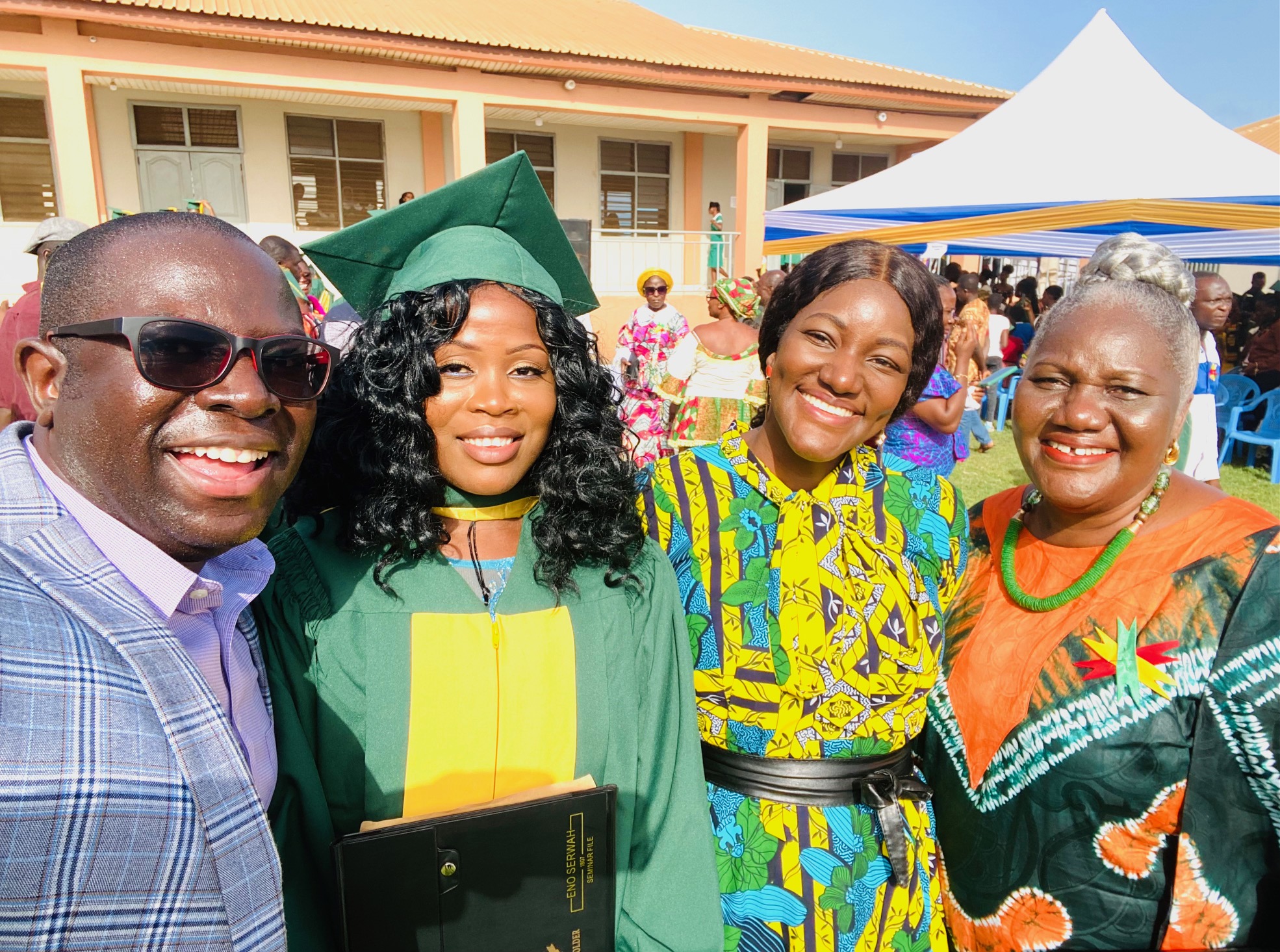
The Way Up is Down.
At Easter, I threw a challenge to the leaders in my network: lay down yourself for someone else’s uplifting. This challenge was triggered by inspiration I received when I had just returned from a college graduation the week before Holy Week. Although it had been a season of graduation ceremonies in Ghana across many tertiary institutions, this was a special one, a very special one.
About six years ago, our family travelled to Ghana from Canada on furlough. We had planned to stay the entire period at my parents-in-love’s residence in Accra. Being a reasonably big-sized big family (the children weren’t even seven yet!) we obviously needed some domestic assistance. We were glad to welcome a promising young lady, Benedicta, as our new house help after a couple of failed trials.
As we lived with her and observed her initiative, diligence, smartness, humility, kindness and care we took an extra interest in what her ultimate dream was. She had the potential to be like any one of us high income, high impact professionals and not necessarily having to be confined to a vocation of domestic assistance her entire life. We found out about her high school final grades and thought they could be improved. And so we (my wife and I, parents-in-love and other family members) decided to invest in her, everything from extra classes through re-sit examinations. Even when she was finally given a shot at college my mother-in-law would get her books and do mock interviews with her to prepare for the entrance interviews. Long story short, she made it into nursing college.Now, that is the graduation we went for that day.
Today, Benedicta is a nurse. She graduated from the Nurses & Midwives Training College in Teshie, Accra, Ghana. From house help to nurse; and that is what brought me to the Easter challenge because at Easter, we see the ultimate leader Himself laying down His life for the people He saw value in. At the risk of sounding holier-than-though, the previous family she left to serve ours was just about to invest in her to be a fried pork seller by the street.
JOHANNINE CHALLENGE
Everybody knows John 3:16: “For God so loved the world that He gave His one and only Son, that whoever believes in Him shall not perish but have eternal life.” But what a lot of people who are not schooled in Trinitarian theology don’t realize is that this scripture is basically saying that God so loved the world—God so saw value in you and me—that he gave Himself for us, because God is Father-Son-Spirit. The ultimate leader laid down Himself for our uplifting.
PAULINE CHALLENGE
This giving of Himself or laying down His life for us is spoken of by St. Paul’s to the Church in Philippi in such humble and humbling terms. He begins in Philippians 2:5 by exhorting that “your attitude should be the same as that of Christ Jesus.” Let’s take Eugene Peterson’s contemporary version:
5-8 Think of yourselves the way Christ Jesus thought of himself. He had equal status with God but didn’t think so much of himself that he had to cling to the advantages of that status no matter what. Not at all. When the time came, he set aside the privileges of deity and took on the status of a slave, became human! Having become human, he stayed human. It was an incredibly humbling process. He didn’t claim special privileges. Instead, he lived a selfless, obedient life and then died a selfless, obedient death—and the worst kind of death at that—a crucifixion.” [1]
Wow! God becoming a man was not just humbling, it was humiliating. Yet even when formed and found in appearance of a human, he could’ve been a very proud man but no! He was down-to-earth and mingled with tax collectors and ‘sinners’. In fact, it was on the night he was betrayed–during Holy Week–that He washed his own disciples’ dirty and stinky feet and wiped them with a towel around his waist.
The way up is down, for because of this humble attitude and action, “God lifted him high and honored him far beyond anyone or anything, ever, so that all created beings in heaven and on earth—even those long ago dead and buried—will bow in worship before this Jesus Christ, and call out in praise that he is the Master of all, to the glorious honor of God the Father.” [2] Even those who are not voluntarily honoring Jesus now will bow one day, compelled. All shall bow to the one who first bowed the lowest and is now raised the highest.
YOUR CHALLENGE
As a leader, I want to challenge you to choose one person, choose one thing to do this month (we’re still in the month of Easter) that involves laying down your preference, time, or money, sacrificing something, dying a little so that someone can live, graduate, have a better life etc. I challenge you to do that because that is the essence of ultimate leadership. Leadership is not about us, it is about those who take inspiration, follow, and learn from us who we get to empower and guide; those around us.
It’s sad to see so many places in the world, especially in Africa, where government official think it is all about them. Unfortunately, even in the church there are a myriad instances where pastors are doing extremely well socioeconomically and there are congregants who are not faring well, at all. Sometimes these leaders are literally fleecing the people, milking them dry till they bleed. That’s not leadership at all, and certainly not servant leadership. Leadership is laying down our lives, laying down our gifts so that others will be blessed. It is going down to pick the downtrodden and lifting them up.
Cecelia Chan poignantly put it this way: “Instead of laying a red carpet for yourself to walk on, lay a bridge and let the young people walk over to you.” This is my challenge to you, at Easter and beyond: lay down yourself for someone else’s uplifting. God bless and honour you too as you learn to lead like Jesus.
References
[1] Philippians 2:5-8, The Message
[2] Philippians 2:9-11, The Message

Competence is Character.
Photo credit: Jethro and Moses, watercolor circa 1900 by Jacques Joseph Tissot (1836–1902), courtesy of Wikimedia.
While a lot of #leadership thinking is that leadership comprises #competence AND #character, for others like Jethro of Midian, competence IS character. Discuss.
For the Eager Beaver:
“Listen now to me,” Jethro advised Moses his son-in-law regarding leadership delegation, “Select capable men from all the people–men who fear [revere] God, trustworthy men who hate dishonest gain–and appoint them as officials over thousands, hundreds, fifties and tens” (Exodus 18). Jethro, also known as Reuel, was a Kenite shepherd and priest of Midian.

The Pilot and the Preacher.
Call me weird but the smoothest airplane touchdown of my life, today, is my most precious birthday gift. This was Melbourne to Sydney on Jetstar JQ502. I couldn’t help but literally clap my hands in my wing seat (I have said my autobiography just might be titled “Wingman;” I’m almost always flying on the wing!). A few others applauded too. Then as we deplaned and I approached the cockpit I noticed the captain who had performed the magic had his door open and was standing right in front of it, interacting with some passengers. Again, I couldn’t pass by without verbalizing my appreciation of his masterly act. “That was a great landing, sir,” I blurted out. The captain half-smiled, almost embarrassingly, and managed to mutter under his breath his appreciation of my applause.
On the jet bridge a sense of regret began to creep over me. Ah! I should’ve asked to take a photo with him! A little weighed down by that remorseful thought I still, slowly but surely, made my way into the terminal and headed for the place people empty their bladder. Guess who I spotted when I returned to a cafe in the terminal to grab some breakfast: the first officer of the flight, looking to make a purchase. And the captain! Yipeee!
I was happy to repeat my admiration and appreciation and ask for his name and a selfie this time. He graciously obliged. So I gave him some context: over the last eight days I had taken 10 flights–Accra to Amsterdam, to Detroit, to Montreal, to Toronto, to Houston, to Auckland, to Gold Coast, to Adelaide, to Melbourne and now to Sydney–and no landing could compare. I could’ve had a hot cup of tea sitting on my lap during that landing and it wouldn’t have spilled!
WHAT DO YOU DO?
By the time I had shared my itinerary above with Captain Phil Peatfield, he had to ask: “What do you do?” To which I immediately responded, “I am a preacher.” Usually in the marketplace context I would mention something more relatable like leadership consultant or executive coach but it felt so good to say “I am a preacher,” even if it meant I would be canceled (as in today’s ‘cancel culture’). “I used to fly preachers around,” Captain Peatfield responded, to my surprise. Apparently he served with Flying Doctors Australia, a non-profit organisation that “provides emergency and primary health care services for those living in rural, remote and regional areas of Australia who cannot access a hospital or general practice due to the vast distances of the Outback.” I didn’t tell him I’m a doctor too. And well, that I was once a captain as well, a military one.
The irony is that as a little boy I had really wanted to be a pilot. I was fascinated by planes and impressed with pilots’ uniforms. I was starry-eyed when I saw my professor-grandfather’s itinerary as he jet set around the globe lecturing on African ethnomusicology. In a moment of annoyance at a friend in junior high who wanted to be a pilot too (he was too enthusiastic about it for my liking) I snapped out of it and decided becoming a medical doctor would be the way to go.
“PEARL OF GREAT PRICE”
As I celebrate my forty-fifth birthday today, as a preacher I am thankful for this unexpected pilot gift from God. Educationists like Parker Palmer encourage parents to take seriously what early manifestations and proclamations their children make about what they want to do when they grow up. Palmer says in, “Before I can tell my life what I want to do with it, I must listen to my life telling the who I am. I must listen for the truths and values at the heart of my own identity, not the standards by which I must live–but the standards by which I cannot help but live if I am living my own life.”*
As I think of that thing that was triggered in me whenever I heard about or saw my grandpa flying the world, I think of Parker Palmer as a grandfather today.
Watching my granddaughter from her earliest days on earth, I was able, in my early fifties. to see something that had eluded me as a twenty-something parent: my granddaughter arrived in the world as this kind of person rather than that, or that, or that. She did not show up as raw material to be shaped into whatever image the world might want her to take. She arrived with her own gifted form, with her shape of her own sacred soul. Biblical faith calls it the image of God in which we are all created. Thomas Merton calls it true self. Quakers call it the inner light, or ‘that of God’ in every person. The humanist tradition calls it identity and integrity. No matter what you call it, it is a pearl of great price.*
Now that I know what I know, I’m eagerly looking out for what my children, nephews and nieces and young mentees were born to be. God creates no one for nothing. We need to find the clues and lead people in the way they should go–they way they are bent.
BORN FOR THIS
I now know that traveling the world was my calling, even from childhood, although I didn’t get my first plane ride till my late teens. But when it rained it began to pour so much that by age 18/19 I had been to every continent in the world except Australasia/Oceania. What a birthday present to have finally made it ‘down under’ to New Zealand and Australia, a quarter of a century later. And it wasn’t being a pilot or physician that brought me here. It’s the preacher I was born to be. Even the pilot was impressed by the preacher’s itinerary. “Wow, what do you do?” The clue all along was that I was born to travel the world preaching the gospel and raising leader-labourers for the Kingdom of God. I know now that I wasn’t meant to be in the cockpit per se but to enjoy the ride and views–the planes’ and the Lord’s.
Whether a pilot like Peatfield or Perbi the preacher or physician, Palmer’s point is one worth profoundly pondering: “Before you tell your life what you intend to do with it, listen for what it intends to do with you. Before you tell your life what truths and values you have decided to live up to, let your life tell you what truths you embody, what values you represent… Is the life I am living the same as the life that wants to live in me?”* Good food for thought on my birthday.
Reference
*Palmer, Parker J. 2015. Let Your Life Speak : Listening for the Voice of Vocation. San Francisco, Calif: Jossey-Bass.
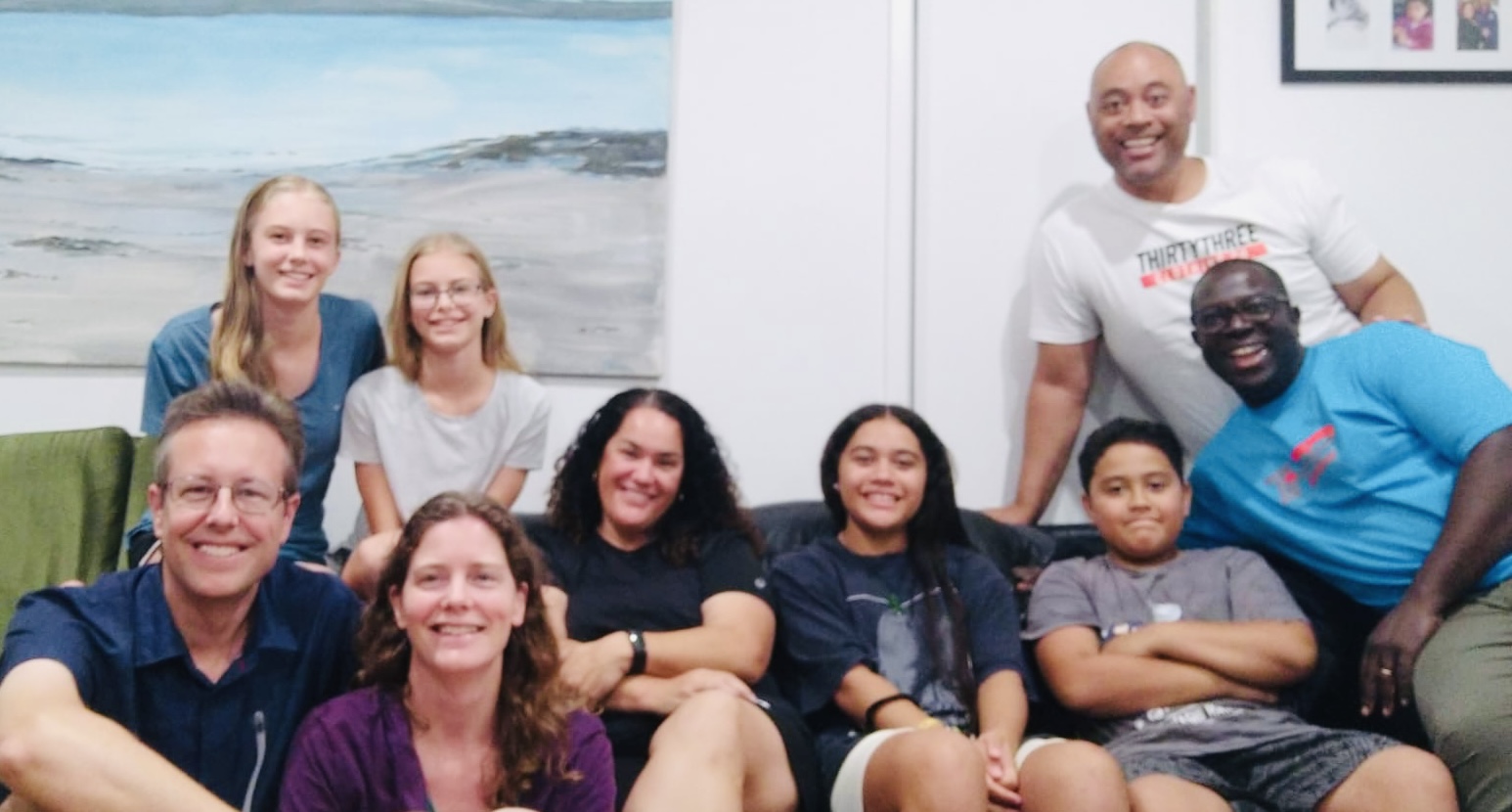
You may have my bag but not my friends.
An exhortation on not allowing circumstances and people who know no better rob you of the wealth of intercultural relationships in our diverse, complex and globalized world.
MYSTERY OF THE MISSING BAG–WHY ME?
I was the last one to walk out of the airport arrival hall at Gold Coast in Australia. I had all the customs and immigration officers to myself, nearly a dozen, yet I gave them absolutely nothing to do. I not only had nothing to declare, I had no bag! Apparently, my only checked-in bag on the three-and-a-half hour NZ 179 flight from Auckland, New Zealand to Gold Coast, Australia had never been loaded onto the plane in the first place. I had waited and waited in vain for it until when nearly everyone on this very full flight had left the baggage hall and Carousel 6 was literally bare, I approached the Baggage Counter to complain about my missing travel companion.
The chap at the Air New Zealand counter was very nice but his assumption that I was going to be in Gold Coast ‘forever’ fascinated me (I’m surprised I wasn’t annoyed).
“Oh sorry sir but your bag will be delivered to you at home tomorrow,” said he.
“Tomorrow? Who told you I’ll still be here tomorrow,” I quizzically retorted.
It was obvious he felt he was doing me a great favour by offering me special at-your-door delivery but I was not amused. Not only did I need the items in my bag today; I was not going to be in Gold Coast in the morrow. This was a 24-hour meet and greet and off to Adelaide, another two-and-a-half hour flight to the western half of the Australian subcontinent.
By now my mind had begun to formulate various plausible permutations why I alone (for I saw no one else approaching the Baggage Counter to lodge a complaint) had my bag delayed. Why me? What was so unique about me that my bag would be singled out for NOT delivery? The only other thing I knew made me different was that I was the only Black African on the flight. Did this have to do with anything?
Interestingly, as I passed through the Auckland airport earlier I had taken a photo in front of the All Blacks memorabilia shop and tweeted “I wonder why I feel so #welcome. #AllBlacks vs #WhitesOnly. How the times have changed–this one, for the better. #NewZealand rocking it!” Did someone spot that and nab me? Was I too quick to praise New Zealand for progressive race relations? Did this bag saga really have anything to do with my Black skin at all? It is easy to read racism into nearly everything once you’ve been a victim of that dehumanizing attitude and act, I must admit. I resist that. I resent that, even.
MYSTERY OF INTERCULTURAL RELATIONSHIPS–SO WORTH IT
All those thoughts and feelings totally dissipated once I set eyes on the last two people left in the welcome area: Julia and Billy-Jo, two of my special friends from the 1997 cohort of the World Vision Youth Ambassadors! Sooo worth the hustle! I had had the privilege of being a World Vision Youth Ambassador for Ghana in 1996 and had the additional honour of returning in Julia and Billy-Jo’s year as a staff intern, together with Claudia from Colombia.
Julia had represented Canada back then and for her, this was our third in-person meeting since 1997 (Prague 2015, Ottawa 2021 and now Gold Coast 2023). But Billy, I had not seen in-person at all since our teenage years! Billy-Jo (yes, she was the first lady I met called Billy–she was way ahead of the gender conversations today!) was the Youth Ambassador from New Zealand. Again, the first Pacific Aboriginal I had ever met, a beautiful Maori, inside and out. Billy’s since become a senior nurse, married to Matt (great guy!) with whom she has three children and migrated to Australia. Interestingly, both Julia and Billy-Jo’s husbands are called Matt. Julia’s Matt is American while Billy’s Western Samoan.
What an incredible day of food, fellowship and fun we had all day, at home and at the Burleigh Beach. The unadulterated love, the open-hearted learning, the deep laughter… What a precious gift we received from Dr. Jerry and Mama Ruth Chang of World Vision Taiwan a quarter-of-a-century ago, a gift that keeps giving, even today.
Now I’m glad our children are getting to know each other as well. The gift ripples on. Just before my family permanently headed to Ghana after a dozen years of being resident in Canada, Julia’s two girls and my brood had a whole day together at their home, right outside of Ottawa, Ontario. In fact, even in the midst of the jamboree we made a WhatsApp video call to Ghana for my older girls to say “hi” to their Canadian sisters. And now that I’ve met Bella and Asher, Billy’s last two (the oldest is away playing rugby and doing school in New Zealand), we have already started conversations about getting them to visit Ghana!
MYSTERY OF INTERDEPENDENCE
Friends, that’s how it ought to be. People are people, made in the image and likeness of their divine Creator, and made to link up with that source, live, love, learn, and lead, leaving a good legacy. Becoming a World Youth Vision Youth Ambassador was a life changing experience–50 young people from 50 different countries. That opened my mind a lot and opened the world to me. As I’ve said before, “My heart expanded and has never been able to shrink again.”
Back to the mystery of the missing bag. For sure I felt very special, having been singled out for some (or no) reason. For good or ill, that’s a conversation for another day. Suffice it to say, this has been a fascinating week, beginning on Monday March 6 in North America (Toronto, Canada and Houston, Texas, USA) with a celebration of the land of my birth’s Independence Day and her renaming from ‘Gold Coast’ to Ghana. I was now ending the week in another Gold Coast, of Australia. The same chaps christened and colonized both; on either side of the equator. What we really need in this world, from individuals to nations, is interdependence; not dependence or independence per se. We were made for this! And we all ought to live the way we were purposed to in order to flourish personally, as families and communities, in the corporate world and among the commity of nations.
In the mean time, you can have my bag but you won’t rob me of the richness of interdependent, intercultural relationships. Never!
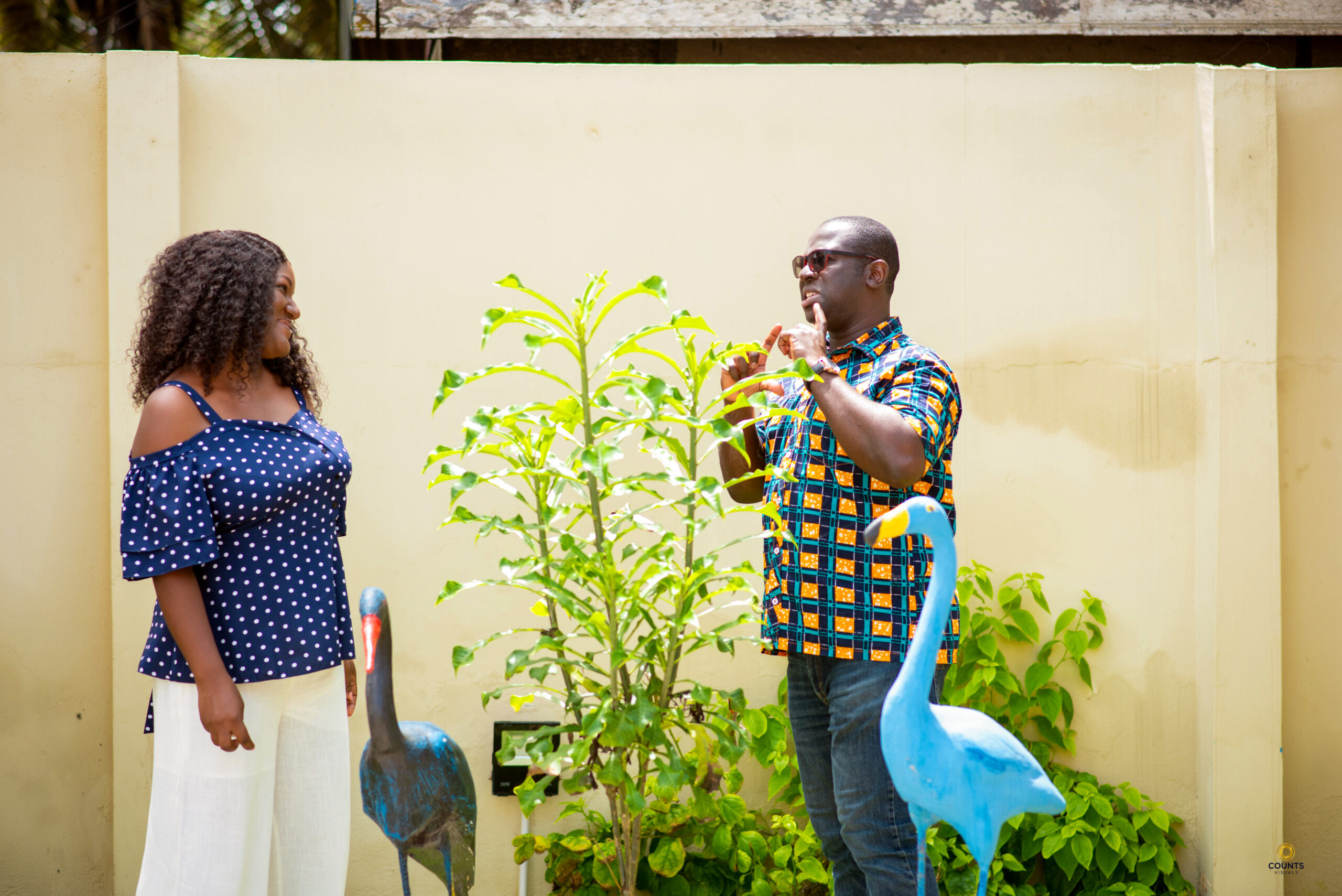
How to Apologize Properly: Seven Succinct & Sturdy Steps.
Let’s talk about apologizing properly. Some people are too prideful to apologize when they err (including me, sometimes). That’s so wrong. But even for those who know they are in the wrong and want to make things right, they often still get making things right wrong.
Imagine my shock, when l was scheduled to have a meeting with one of the top CEOs in Africa and l kept waiting and waiting and waiting and… this person wasn’t showing up. So I signed off from Zoom about 20 minutes later and sent a message: “I hope you’re okay…” etc. etc.
It wasn’t until the next day when this leader sent what was supposed to be an apology. All this person said was, “Apologies.” End of story. What?! I was shockprised. “Is that how to apologize?” I soliloquized. Then l began to understand why only a couple of weeks earlier one of my close friends who is also a top executive of a Ghana Club 100 company shared with me how one of my daughters had totally shocked him. Apparently, she had stepped on him or something of the sort (l forget) but that wasn’t the source of the shock. It was how she apologized. That so astonished him and he said to himself, “I’ve got to learn how to apologize this way.” He is now actually teaching his family that this is how to apologize properly henceforth, when you do something wrong.
This is the way to apologize, for acts of commission (doing what you’re not supposed to do) and omission (not doing what you’re supposed to do) alike:
- Mention the fellow’s name: “Anyele.” “Frankie.” Mentioning a person’s name calls their attention, makes it personal, and connects us to the caller.
- Spell out your offence: “l missed our appointment” or “l did not put the money in the bank like you had asked me to”
- Acknowledge you erred, openly admitting it: “l am wrong”
- Let them know you regret it, verbally articulating it: “I am sorry”
- Ask for their pardon: “Please forgive me.”
- Wait for their response (hopefully they can process right there and then and also give you a response in the affirmative).
- Thank them (no matter the response).
So here’s an illustration of how my CEO friend should’ve apologized: “Yaw. I totally missed our appointment and stood you up. I am wrong. I am sorry. Please forgive me.” This is the way to apologize properly. Just saying “apologies” or a half-hearted “oh sorry” in a huff doesn’t cut it. I am learning to do this better and better because I realize that sometimes when I’m not really really sorry I don’t want to go through this process and certainly don’t want to make the above string of statements.
Giving the other person the opportunity to forgive you by saying “please forgive me” is very empowering for the offended party. It kind of disarms the offender simultaneously too. I hope you’ll practice this and that true transformation will transpire because you are truly deeply sorrowful for what you did wrong even if it’s the slightest thing. Remember, “Ms. ABC, I did XYZ. I am wrong. I am sorry. Please forgive me.” Then await their response and thank them. This is the proper way to apologize. Some even go an extra length to state what they’re going to do to make things right and/or renegotiate the promise.
I am wary of people who are not self-aware enough to recognize they’ve done wrong, whether upon self-reflection or via feedback. And I don’t trust those who won’t say sorry after they’ve been made aware of it, and do it seriously and sincerely. I won’t do business with them because they have low integrity. Of course ,the first layer of integrity is keeping one’s word. But when inadvertently through extenuating circumstances one is unable to, to keep one’s integrity we still need to acknowledge that our integrity is unraveling (not just pretend we never gave our word in the first place) and then still honour our word by apologizing in the above manner and renegotiating.
Apologizing properly is not a trivial matter. It has saved personal relationships, families, communities, organizations and even nations. Let’s begin to take apologizing properly and sincerely seriously: on a personal level, then in our families and communities, ultimately in our corporate world and national life. Now, go and do likewise and teach the people at your workplace, on your team, and even your spouse and cubs to do same. That’s the way to go.

The Fathers’ Appetites Have Soured the Children’s Futures
The following slightly edited version of this article was first written and posted on Dr. Yaw Perbi’s FaceBook wall on January 31, 2023. At the time, that last day of January was the deadline to tender in eligible Government of Ghana bonds in the controversial Domestic Debt Exchange (DDE). There have been scores of passionate responses to the trending article that we have decided to reproduce it here so people are able to document these for posterity.
I am pained that, ‘The fathers have eaten sour grapes, and the children’s teeth are set on edge’ (Ezekiel 18:2). For over 20 years now, The HuD Group and I have championed a culture of savings and investments in Ghana, and had the JOY of seeing thousands heeding the call, especially young people. Financial Whizzdom, is what we called the campaign.
I wrote three personal finance books and executed a triple launch of Financial Whizzdom, Financial Whizzdom Nuggets (a summary) and Financial Whizzdom through Investment Clubs. It was around that time that Uncle Ken became a mentor to me. He was intrigued that a medical student would be so adept at the world of finance. He not only loaned us some money to finish the project (which we fully paid back within three months or so) but he also passionately spoke at the triple launch. The year was 2004.
Many like-minded people came together to push a savings and investments culture among young people. We traveled the length and breadth of Ghana, doing several seminars and workshops. Medics Investment Club (which really is the first investment club in Ghana per the National Association of Investment Clubs definition) became a model for many who also started their own investment clubs around the country, from university campuses and nursing training colleges to even secondary schools. No wonder I’ve been christened “the grandfather of investment clubs in Ghana.”
The many who wanted to join our investment club at the University of Ghana Medical School but who couldn’t (we had set the maximum for 20) were mobilized into a collective investment scheme we called ‘Mutual Medics.’ At the peak we grew to about 300. We sacrificed student loans, ice cream money and even extra-curricular fun and entertainment to save for our future. Almost none of us have withdrawn the monies we invested almost two decades ago.
Today, January 31, 2023, is the deadline for the trustees of this mutual investment scheme we set up way back in our medical school days to inform Databank for sure whether or not to tender in our eligible bonds in the Government of Ghana’s Domestic Debt Exchange (DDE) debacle. Our fund managers had 70% of the total value of the fund in government bonds, which in normal times and normal places with normal people are supposed to be very low risk, even tempting some advisors to say ‘no risk’ (nothing is ‘no risk,’ not even life itself!).
This DDE is supposed to be a voluntary move but in reality it is a case of “choose your poison.” If you drink this one you will die, if you drink the other one, you will surely die. I am pained for myself, colleagues, fund managers, and the whole investment fraternity in Ghana, especially the younger generation. How did we get here? Indeed, ‘The fathers have eaten sour grapes, and the children’s teeth are set on edge.’
Even more heart-wrenching is that if this should happen under any Finance Minister’s regime, not under the watch of the very mentor who, as far as I know, has spent his whole life building the very financial culture, structures and systems that seem to be now crumbling at his hitherto dextrous hands. The irony.
I am pained. Very much. Whoever has eaten our money, killed our dreams, buried our hope and compelled us to come for unfashionable haircuts that make us look like our misery will have to make it up to us, somehow, even if it is their children or their children’s children. In the mean time, ‘The fathers have eaten sour grapes, and the children’s teeth are set on edge.’ Ah!
~By Dr. Yaw Perbi
Photo credit: Opinion Nigeria
Post Script
We shall do well to document as many of the responses we’ve garnered so far as possible. This issue warrants a national conversation, at the least. A national demonstration for all those equally pained might also be in order to send a strong message to the current government, who in spite of all the pain they are inflicting on the citizenry, have shown no significant sense of regret, repentance or even austerity.

Meet Tim Elmore, Intergenerational Leader of Leaders.
Dr. Tim Elmore’s passion for leader development began in 1983 when he worked alongside and was mentored by best-selling author, Dr. John C. Maxwell. Since then, he’s emerged as an author, leadership expert, and keynote speaker who’s trained more than 500,000 leaders in hundreds of organizations worldwide. Speaking of intergenerational leadership, he’s also the Founder and CEO of Growing Leaders, a non-profit team that equips students and young professionals around the world to become life-giving leaders. Tim has developed young leaders on every continent and has spoken in 50 countries including India, Russia, China, Brazil and throughout the Middle East.
Dr. Elmore has advised corporations such as Chick-fil-A, Cox Communications, the Home Depot, Cici’s Pizza, Delta Global, Coca-Cola Consolidated, and more. He’s spoken at top-tier universities such as Stanford, Texas, Duke, Ohio State, Georgia Tech, U.C. Berkeley and more. And he’s presented to executives and world-class athletes with the Kansas City Royals, New York Giants, Houston Rockets, and San Francisco Giants. His blog is read by over 100,000 people weekly.
THE INTERGENERATIONAL WORKPLACE OF THE 21ST CENTURY
At Live2Lead on October 7, come hear how Tim brings his decades of research and leadership experience to bear on what might be the biggest, most dramatic, and most disruptive shift the workforce has ever seen: the vast diversity of several generations living—and working—together. Tim Elmore explores the fact that for the first time in history, up to five generations find themselves working alongside each other in a typical company. The result? There can be division. Interactions between people from different generations can resemble a cross-cultural relationship. Both usually possess different values and customs. At times, each generation is literally speaking a different language!
How can we hope to work together when we can’t even understand each other? Tim will provide the tools to:
- Get the most out of the strengths of each age group on your team.
- Foster effective communication instead of isolation among people.
- Build bridges rather than walls so that loneliness becomes connectedness.
- Connect people to learn how both veterans and rookies can mentor each other.
ADD VALUE TO YOU AND YOURS
At YAW PERBI Executive Leadership Education all our offerings are to the end that leaders grow personally, succeed professionally and become significant societally. Join Dr. Tim Elmore and the other stellar faculty Dr. John Maxwell has put together for this year’s Live2Lead conference and tune up your leadership game. Register now through this link. Impress upon your organization to join the movement that will transform society by becoming a Patron of Live2Lead. A Patron company or individual is one that sends at least 10 leaders to Live2Lead. Together we can change our world for the better!
Register HERE, NOW.

